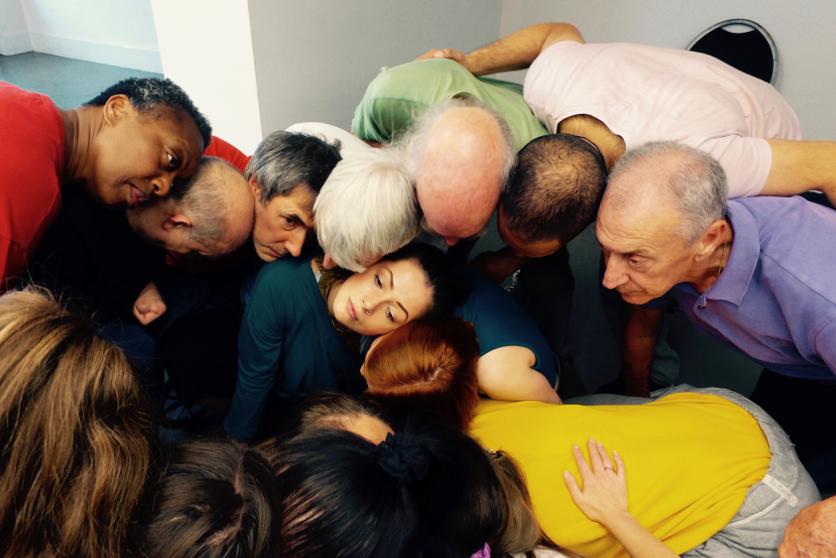
Matt Hancock’s speech on 6 November – ‘The power of the arts and social activities to improve the nation’s health’ – is enormously significant. This is the first time a Secretary of State for Health has spoken about creativity and culture in relation to health and wellbeing for over a decade. And never has the commitment been clearer.
Hancock says “We should value the arts and social activities because they’re essential to our health and wellbeing. … It’s scientifically proven. Access to the arts and social activities improves people’s mental and physical health. It makes us happier and healthier.”
He acknowledges in his speech the work of the All Party Parliamentary Group for Arts, Health and Wellbeing in bringing together the evidence. In turn I’d like to acknowledge the work of the chair of the Culture, Health and Wellbeing Alliance, Alex Coulter, in relation to the APPG and her tenacity, together with the APPG’s own chair Lord Howarth of Newport – and of course a myriad other practitioners, participants and campaigners – in opening up more effective communication channels between government and practice in this area than we have ever known.
But the question is: what now? The Secretary of State wants to improve access to libraries and museums. Access equals funding, but his speech talks mainly about what is already there. As Guy Eades pointed out in his response to a previous blog, we need proper investment to make this work. If we want GPs to prescribe dance, we need tangible support for the organisations that support and train these dancers.
Alex Coulter’s own recent blog provides useful reflections on the ‘shift in the centre of gravity’ that is seeing more and more people inside the health edifice lobbying for culture and creativity – and also speaks to likely concerns about Matt Hancock’s reference to ‘free activities’. Clive Parkinson’s blog raises alarm bells in relation to considering the arts and culture a ‘free social cure’.
This is indeed a strange time for advocates of culture, health and wellbeing. On the one hand, we are hearing the most high-level support from government in living memory. On the other, we are constantly reminded of the existential threats to the health and social frameworks in – or at least near which we operate. The King’s Fund, Health Foundation and Nuffield Trust’s recent guide to the budget tell us that despite recent announcements of funding for NHS England, ‘the DHSC budget, excluding the NHS England and capital budgets, will fall by £1bn in real terms in 2019/20’. The King’s Fund unequivocally states that the budget’s commitment ‘falls far short’ of what is needed for adult social care, and that the ‘social care system cannot continue to get by on last-minute, piecemeal funding announcements’. The BMJ’s 6 November editorial goes further, tackling the broader effects of austerity on health:
The determinants of health are much wider than the provision of health and social care. To maximise healthy life expectancy, as espoused by the secretary of state Matt Hancock, we should establish the health effects of spending on social security, education, housing, the environment, transport, and many other areas, all arguably neglected in recent spending settlements. Deep cuts in social security budgets are likely to affect adversely the wellbeing of many, particularly children and families, and are particularly concerning with regard to future health inequalities.
The palpable frustration across the board – from the Royal Colleges to independent think-tanks, to NGOs, to unions, to the CQC – is impossible to ignore. This week the government announced a package of £3.5 billion for primary and community care, but – as has often been the case recently – this is not in addition to but from within the sums already committed.
Although the Culture, Health and Wellbeing Alliance is funded as a sector support organisation for the cultural sector, functioning state health and social care are as central to our work as creative practice, museums, galleries and libraries. How best can we reconcile support for the new wave of holistic thinking spearheaded by Matt Hancock, with a capacity to critique the falling away of the fundamental principle of (must it be said? quality) care free at the point of need, with the brutal effects of universal credit, and so on and so on?
I don’t have an answer (and welcome your thoughts if you would like to comment below). But I do feel that if the cultural and heritage sectors are to do the health and wellbeing work we have long argued they can, the health and social infrastructure around this work must be lifted off its knees.
It is extremely encouraging, however, to see Hancock challenging ‘big pharma’:
…social prescription reduces over-subscription of drugs. It can lead to the same or better outcomes for patients without popping pills. And it saves the NHS money, because many of these social cures are cheaper or free.
Now, drug companies may not like that. And you can bet this multi-billion pound industry will use every tool at their disposal to lobby for the status quo and convince us drugs are better than free social cures. That’s why we need a National Academy for Social Prescribing to be a champion for non-drug treatments. And it’s the role of the state to sponsor the treatments that are often cheaper, better for patients, and better for society.
His words suggest a courageous commitment to shifting the balance away from medicalisation and towards care and community. It is to be hoped this guiding principle will push the Department for Health to care for its wider community by tackling health inequality.
